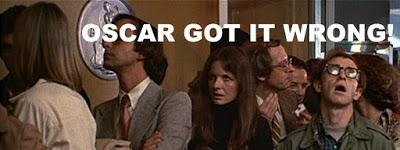Billy Wilder: Double Indemnity
Leo McCarey: Going My Way (winner)
Otto Preminger: Laura
Alfred Hitchcock: Lifeboat
Henry King: Wilson
What’s Missing
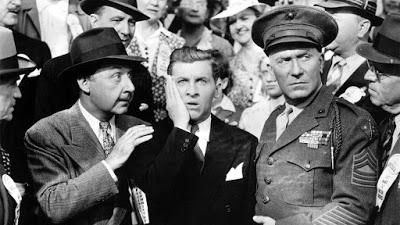
For a wonder, the nominations for Best Director for 1944 aren’t that terrible. Oh, there’s some dross here that we can launch pretty quickly, but it’s a far better and more appropriate set than for other awards in other years. Assuming I’d probably keep 60% of the slate, there are a few places to go for replacements, and in 1944, this is going to be a long list of the usual suspects for director. We can start with George Cukor for Gaslight, a film that continues to rise in my estimation the more I think of it. While I wouldn’t nominate Vincente Minnelli for Meet Me in St. Louis, I fully understand why someone might. Lewis Allen nominated for The Uninvited is a longshot, but I’d rather have him here than at least one of the actual nominations. Frank Capra for Arsenic and Old Lace is potentially interesting, as would be Howard Hawks for To Have and Have Not. The person who really should be here, though, is Preston Sturges for either The Miracle of Morgan’s Creek or Hail the Conquering Hero. I prefer the latter film and I think it has more teeth, so that’s where I’d go with the nomination.
Weeding through the Nominees
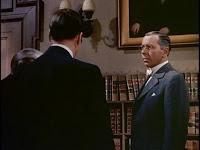
5. Of the five directors we have nominated here, Henry King’s performance for Wilson doesn’t deserve to be in the same sentence as any of the other nominations, even the one I’m putting fourth. This is a long, dreary hagiography about Woodrow Wilson. I get that it’s about a president who proved to be popular. I get that there is a desire to have a warts-removed film about him and his life. But this is a long, syrupy mess that didn’t deserve this sort of acclaim in 1944 and has been rightfully forgotten and ignored today.
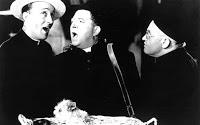
4. When I first started doing these Oscar posts, there was a tendency for some time to put the actual winner in fourth place. I’m going to return to that here with Leo McCarey and Going My Way. The truth is that I liked this movie a lot more than I thought I would going in. Much of that has to do with just how easy it is to like Bing Crosby on screen. Almost none of that has to do with McCarey’s direction. That direction isn’t bad; it’s just not notably good or bad. It’s there. It’s fine. It doesn’t deserve an Oscar.
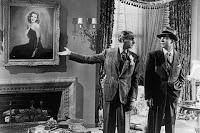
3. Laura is a fine film and I tend to like Otto Preminger’s work in general. I think based on past comments that I like Laura a little less than just about everyone else. I do have a few issues with the movie, particularly in the performance of Gene Tierney (not bad, not great) and in the motivations of the Dana Andrews character. Not all of that is Preminger’s fault, of course, but some of it does have to fall on him. I get the nomination and I might even get someone calling it his or her pick. It’s not mine, though.
My Choices
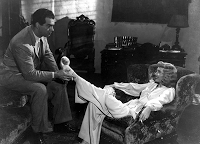
2. Since we’re below the fold here, I’d have accepted either of these choices as legitimate ones, but I still need to put them in order. It’s with a little bit of sadness that I’m putting Double Indemnity in second place. I do love this movie, and some of the reasons for that come from Wilder’s use of camera and how he deals with the Hays Code. So much is made more intense and disturbing thanks to Wilder’s deft touch. Had he won for this, I wouldn’t have objected even if my vote goes to someone else.
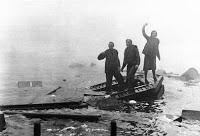
1. Alfred Hitchcock never won a competitive Oscar. There are several years where he could have, and 1944 is a year where he should have. What makes Lifeboat so good from the director’s perspective is that it works at all. The whole thing takes place on a boat. Hitchcock manages to maintain a level of suspense and threat despite his limited location. Hitchcock evidently liked to set himself challenges, and Lifeboat, while it has its problems, was challenge accepted and accomplished for Hitch. He should have taken this.
Final Analysis
